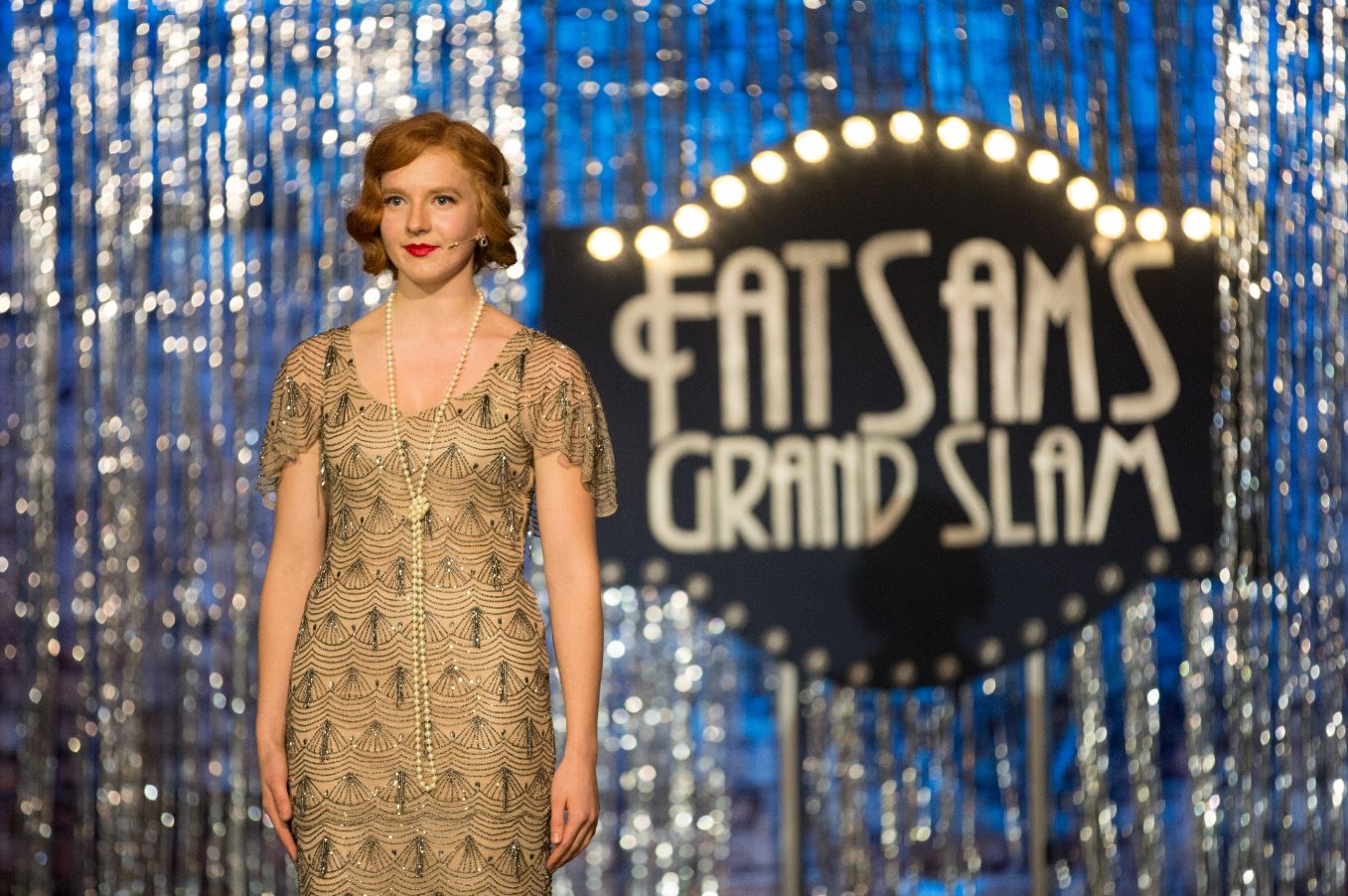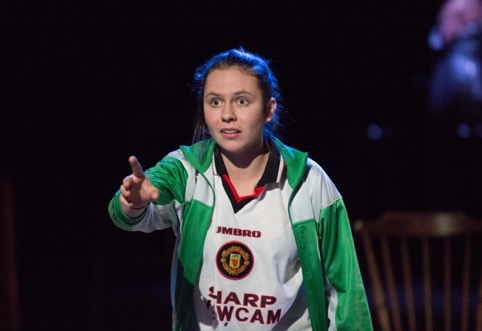We are committed to fostering a love of drama by providing opportunities to shine both on stage and behind the scenes.
Drama is taught as a discrete subject in Years 7 to 9, teaching all students valuable performance and theatre-making skills, as well as inspiring creativity, building confidence and encouraging teamwork.
For those who enjoy the subject, we offer Drama GCSE as well as a whole host of enrichment opportunities to get involved with our busy programme of theatre productions.
There are plenty of opportunities for acting, dance, original live music, puppetry and even film. Students contribute as choreographers, composers, designers, prop-makers, assistant directors, technicians and film-makers. We set high expectations and encourage a professional approach.
Facilities
We have a fully equipped studio for class, club and small-scale performance work and our main school hall transforms into a professional theatre space for larger-scale performances and productions.
Further opportunities
We run a very busy schedule of Drama productions and clubs for all age groups in Senior School.
Every student has an opportunity to take part in a main school production at some point during the academic year; other lunchtime and after school clubs vary from term to term but include:
- Year 7 Drama Club
- Year 8 Drama Club
- Year 9 Drama Club
- Backstage Club, Years 7-8
- Backstage Club, Years 9-11
- Tech Club, Years 7-8
- Tech Club, Years 9-11
Speech and Drama lessons are also available privately – these are taught in small groups or individually and lead to LAMDA exams.
Year 7
Drama lessons in Year 7 are lively, practical and enormous fun. Students participate in games, workshops and creative projects to develop their skills as performers and theatre makers, to encourage communication and collaboration and to build confidence.
Students also develop their understanding of how to create theatre by exploring a wide range of theatrical styles and genres. These include mask work, physical theatre, storytelling, improvisation, mime and comedy; students work from scripts but also devise their own work from a variety of stimuli. They learn to consider the impact they wish to have on their audience and how to evaluate their own work and the work of their peers. Students are taught how to operate the sound and lighting equipment in the Drama Studio and are encouraged to incorporate technical elements into their work. Students develop confidence as performers and communicators by taking part in regular informal class performances.
Year 8
Year 8 Drama students further develop their performance skills and confidence through status exercises, trust exercises, ensemble work and spontaneous improvisation exercises. They collaborate in pairs and small groups to devise and create their own pieces of performance which they share with their peers in regular informal class performances. They further develop their collaborative skills by working in groups on two extended projects. The first of these is a silent movie topic, in which they incorporate physicality, mime and comedy to create a piece of non-verbal dialogue performance: they have the option to perform this live, or they can create and edit their own silent movie film. The second is a Greek theatre topic in which students explore Greek myths or texts and consider how these can be interpreted and presented to a contemporary audience.
Year 9
Drama is an optional subject in Year 9; students can choose between Drama (Performance) and Drama (Backstage).
The Drama (Performance) course is for anyone wishing to develop their skills as a performer and theatre maker. It is also an excellent opportunity to further develop collaborative and communication skills through working on extended group projects. This very practical course focuses on three main areas - performing text, devising original theatre and learning to evaluate and analyse the work of live theatre makers, all of which help prepare students for the GCSE Drama course. Through practical workshops students explore a wide range of different performance techniques and theatrical styles, improving their own performance skills in the process. They consider the work of contemporary theatre companies and the techniques they employ to create dynamic, engaging performance work. Students collaborate in small groups to rehearse and perform extracts from a range of different scripts and they explore different ways to bring the text alive for an audience. Students also devise their own, original piece of performance from a given stimulus. Where possible they are encouraged to incorporate technical elements such as sound and lighting.
On the Drama (Backstage) course students learn about theatre designers and makers who specialise in a variety of areas such as costume, set, lighting, projection, makeup, puppetry or sound. They may also explore the roles of the stage managers and technical crews who work backstage during a show. Through a series of research and practical tasks students develop their own skills as a theatre maker, designer or crew member. In the second and third terms students work as part of the creative team on specific projects: these may include designing and making items for one or more senior school theatre productions. There may also be an opportunity for some students to join the backstage crew to assist behind the scenes during a production.
NB: students wishing to take GCSE Drama are advised to choose the Drama (Performance) course.


